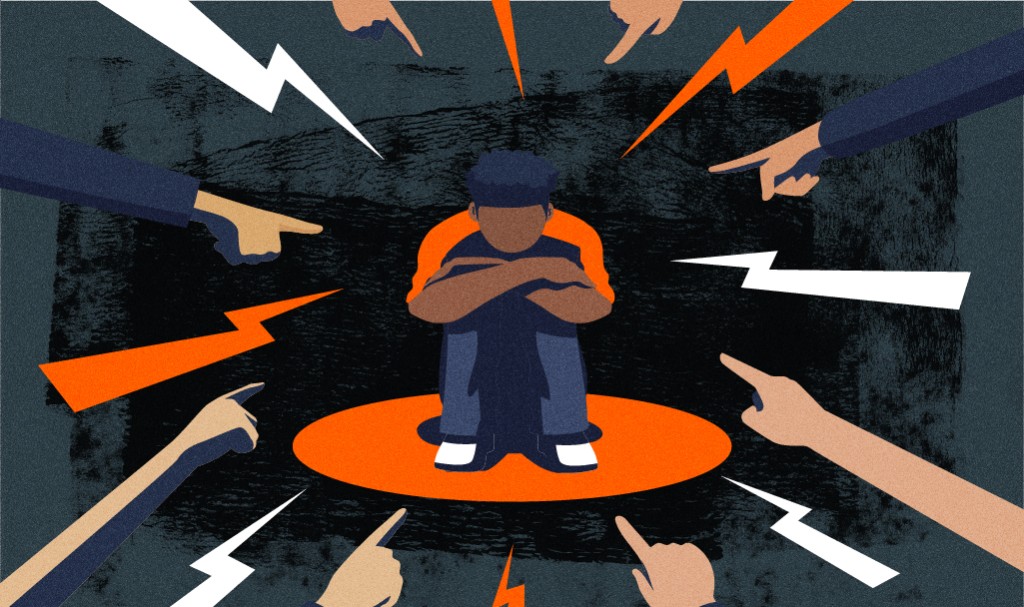AsianScientist (Feb. 29, 2024) – A new research conducted by the University of Tokyo showing a link between teenagers who get bullied and the early stages of psychotic episodes they experience.
The study, published in Molecular Psychiatry, found that bullied teens not only face a higher risk of experiencing early psychotic symptoms but also exhibit lower levels of a critical neurotransmitter in the brain responsible for emotion regulation. The finding suggests that this neurotransmitter, called glutamate, may be a potential target for pharmaceutical interventions aimed at reducing the risk of psychotic disorders. Glutamate is involved in a wide range of functions, including learning, memory and mood regulation.
Psychosis has been linked to altered levels of glutamate, which is abundant in the brain’s anterior cingulate cortex (ACC). The ACC plays a crucial role in regulating emotions, decision-making and cognitive control, making it a key area for understanding mental health. Psychosis is a mental state characterized by loss of contact with reality, incoherent speech and behaviour and typically hallucinations and delusions.
Researchers have noticed reduced glutamate levels in people undergoing their initial episode of psychosis or those with treatable schizophrenia. Changes in glutamate levels are also linked to mental health conditions like depression and anxiety. So far, changes in glutamate levels in the ACC in those individuals at high risk of psychosis, and the relationship between this and the effects of bullying in adolescents has remained unclear.
To understand this, researchers used magnetic resonance spectroscopy (MRS), a type of radiological imaging applied to depict brain structure and function, to measure glutamate levels in the ACC region of Japanese adolescents. They measured glutamate levels at a later stage, enabling them to evaluate changes over time. They then compared these changes with experiences of bullying, or lack thereof, and assessed whether individuals facing bullying had any intention to seek help.
By tracking bullying through questionnaires and psychiatric measurements, the researchers identified a significant association between bullying and higher levels of subclinical psychotic experiences in early adolescence. These subclinical experiences, resembling psychosis but not meeting full diagnostic criteria, include hallucinations, paranoia, or significant changes in thinking or behaviour, and can have a significant impact on well-being and functioning, even in the absence of a psychotic disorder diagnosis.
“Studying these subclinical psychotic experiences is important for us to understand the early stages of psychotic disorders and for identifying individuals who may be at increased risk for developing a clinical psychotic illness later on,” said Naohiro Okada, lead author of the study and project associate professor at the University of Tokyo’s International Research Center for Neurointelligence.
The study found that higher levels of these experiences were linked to lower levels of anterior cingulate glutamate in early adolescents.
Protecting bullied kids
To address this link, Okada emphasised the importance of anti-bullying programs in schools. “Anti-bullying programs in schools that focus on promoting positive social interactions and reducing aggressive behaviours are essential for their own sake and to reduce the risk of psychosis and its subclinical precursors,” said Okada. “These programs can help create a safe and supportive environment for all students, reducing the likelihood of bullying and its negative consequences.”
Resources such as counseling services, peer support groups, and other mental health interventions can help these individuals cope with the effects of bullying and build resilience, he stated.
While the study identifies a potential pharmacological target, Okada suggested nonpharmacological interventions, such as cognitive-behavioural therapy or mindfulness-based approaches, to address the neurotransmitter imbalance associated with bullying.
—
Source: University of Tokyo ; Image: Freepik and Asian Scientist Magazine
The article can be found at: Longitudinal trajectories of anterior cingulate glutamate and subclinical psychotic experiences in early adolescence: the impact of bullying victimization
Disclaimer: This article does not necessarily reflect the views of AsianScientist or its staff.


